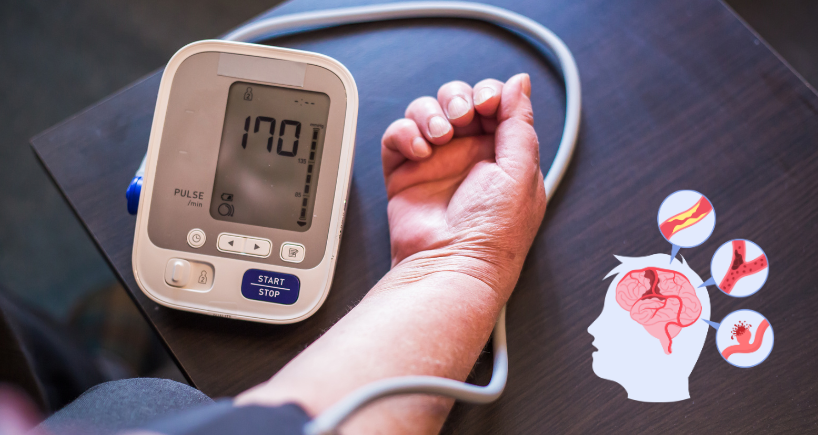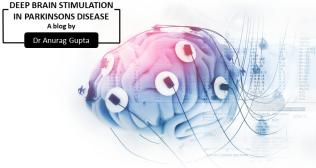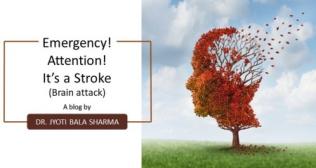
The Silent Threat: How High Blood Pressure Affects Your Brain
Imagine forgetting a familiar word or struggling to remember a recent event. These are just some potential consequences of a silent danger lurking in the background – high blood pressure, also known as hypertension. Let's explore how hypertension can impact your brain health and what you can do to keep your mind sharp and your blood pressure under control.
High Blood Pressure: A Silent Threat to Your Brain
Think of your arteries as highways for blood to travel to your brain. When your blood pressure is high, it's like rush hour traffic on a narrow road – increased pressure and congestion. Over time, this constant strain can damage the delicate blood vessels in your brain, leading to several concerning issues:
- Strokes: High blood pressure is a major risk factor for strokes. A stroke occurs when a blood clot blocks blood flow to a part of the brain, causing brain cells to die. Depending on the affected area, a stroke can lead to memory loss, paralysis, speech difficulties, and even death.
- Cognitive Decline: Hypertension can also contribute to cognitive decline, a gradual loss of thinking skills. This can manifest as difficulty concentrating, remembering information, and making decisions. In extreme circumstances, dementia may develop.
The Domino Effect: How Hypertension Damages the Brain
Here's how uncontrolled hypertension can have a domino effect on your brain health:
- Reduced Blood Flow: High blood pressure can damage the blood vessels in your brain, narrowing them and making it harder for blood to flow freely. This reduces the oxygen and nutrients vital for healthy brain function.
- Brain Damage: Chronic lack of blood flow can lead to tiny "silent strokes" in the brain. These cause damage to brain tissue and contribute to cognitive decline.
- Inflammation: Hypertension can trigger inflammation throughout the body, including in the brain. This inflammation can further damage brain cells and impair cognitive function.
Taking Charge of Your Brain Health: Strategies to Lower Blood Pressure
The good news is that you can significantly reduce your risk of stroke and cognitive decline by managing your blood pressure. Here are some effective strategies:
- Diet Changes: Embrace a healthy diet rich in fruits, vegetables, whole grains, and lean protein.
- Exercise Regularly: Aim for at least 30 minutes of moderate intensity exercise most days of the week. Exercise helps lower blood pressure naturally.
- Manage Stress: Chronic stress can raise blood pressure. Practice relaxation techniques like yoga, meditation, or deep breathing exercises to combat stress.
- Maintain a Healthy Weight: Excess weight puts extra strain on your heart and blood vessels.
- Restrict Alcohol: Drinking too much alcohol can raise blood pressure.
- Don't Smoke: Smoking damages blood vessels throughout the body, including those in the brain.
- Medications: If lifestyle changes alone aren't enough, your doctor may prescribe medication to control your blood pressure.
- Adequate Sleep: 7-8 hours of uninterrupted sleep is must.
Prioritize Your Brain Health: Schedule Regular Checkups
Early detection and management of hypertension are crucial for protecting your brain health. Don't wait for symptoms – schedule regular checkups with your doctor to monitor your blood pressure.
At Fortis Hospital, Gurugram, our dedicated team of neurologists and healthcare professionals are committed to helping you maintain a healthy brain. We offer comprehensive neurological care, including hypertension management and cognitive assessments. Schedule an appointment today to discuss your individual needs and create a personalized plan for a healthy and thriving brain!
Remember: Taking charge of your blood pressure is an investment in your brain health and overall well-being. By adopting healthy lifestyle habits and working with your doctor, you can keep your blood pressure under control and protect your cognitive function for years to come.
Categories
Clear allMeet the doctor

- Neurology | Neurology
-
23 Years
-
2300



















